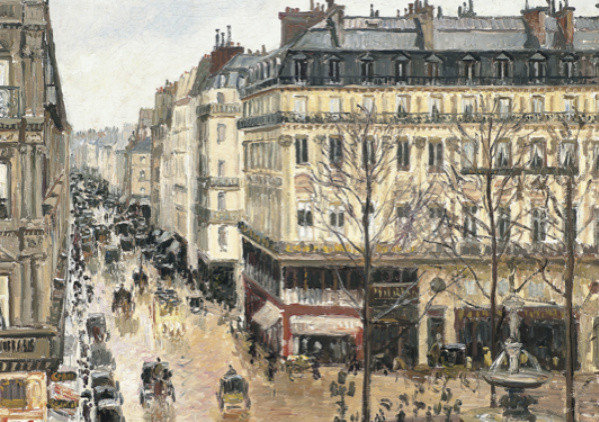I’ve been talking quite a bit to friends, colleagues and clients about the impact of last week’s decision in the Cassirer v. Thyssen Bornemisza case. The New York Times had a follow up article yesterday which was an interesting treatment of the various themes at work in the case and in restitution cases in the United States generally these days. In fact, I think the effect is mostly limited, except to the extent that the decision assumes and treats as uncontroversial important principles about sales under duress and is a case that resolved title under the Foreign Sovereign Immunities Act (FSIA). As we predicted, the Times article makes clear that the museum has absolutely no intention of giving the painting back, but did float the idea of some recognition of the historical circumstances, which is progress (certainly compared to other instances in which obvious circumstances of duress are denied).
Cassirer and the State of Restitution—Takeaways and Next Steps
Topics: Lilly Cassirer Neubauer, Terezin Declaration, Thyssen-Bornemisza Collection, Rue St. Honoré après-midi êffet de pluie, Jacques Goudstikker, California Code of Civil Procedure § 354.3, Nazi-looted art, Foreign Sovereign Immunities Act, Washington Conference Principles, Bakalar v. Vavra, Fritz Grünbaum, FSIA, adverse possession, expropriation exception”, Restitution, Marei Von Saher, sovereign immunity, Egon Schiele, Jakob Schweidwimmer, World War II, Foreign Sovereign Immunities, Restatement (Second) of Conflict of Laws § 222, Altmann v. Republic of Austria, Camille Pissarro, foreign affairs doctrine, Ninth Circuit Court of Appeals, Museums, Baron Hans-Heinrich Thyssen- Bornemisza, 28 U.S.C. § 1605
District Court Dismisses Cassirer Claim for Pissarro against Thyssen Bornemisza Collection by Applying Spanish Law of Adverse Possession
One of the longest running art restitution litigations in the United States has been dismissed for a second time, with another appeal likely to follow. The heirs of Lilly Cassirer Neubauer have been pursuing the return of Camille Pissarro’s Rue St. Honoré, après-midi, êffet de pluie from the Thyssen-Bornemisza Collection in Madrid for more than ten years, but on June 4, 2015 the U.S. District Court in Los Angeles ruled that the Spanish museum has acquired full title to the painting by adverse possession. The key aspect of the decision is the court’s resolution of the choice of law question, namely, should California law or Spanish law apply to the question of who owns the painting? After a lengthy analysis the court determined that Spanish law applies, and that the museum has possessed the painting long enough to have become the owner regardless of the fact that it was sold under duress. So now a case that has already been to the Ninth Circuit Court of Appeals twice will almost certainly head back a third time. The court concluded its decision by appealing to the parties to “pause, reflect, and consider whether it would be appropriate to work towards a mutually-agreeable resolution of this action, in light of Spain’s acceptance of the Washington Conference Principles and the Terezin Declaration, and, specifically, its commitment to achieve “just and fair solutions” for victims of Nazi persecution.” But it is hard to see why that would happen. Notwithstanding the dictates of the Washington Principles, the Collection has been quite content to resist the claim. Now that it has won, it is hard to imagine it suddenly taking a different view.
Topics: Lilly Cassirer Neubauer, Terezin Declaration, Thyssen-Bornemisza Collection, Rue St. Honoré après-midi êffet de pluie, Jacques Goudstikker, California Code of Civil Procedure § 354.3, Nazi-looted art, Foreign Sovereign Immunities Act, Washington Conference Principles, FSIA, adverse possession, expropriation exception”, Restitution, Marei Von Saher, sovereign immunity, Jakob Schweidwimmer, World War II, Foreign Sovereign Immunities, Restatement (Second) of Conflict of Laws § 222, Altmann v. Republic of Austria, Camille Pissarro, foreign affairs doctrine, Ninth Circuit Court of Appeals, Museums, Baron Hans-Heinrich Thyssen- Bornemisza, 28 U.S.C. § 1605, Welfenschatz



